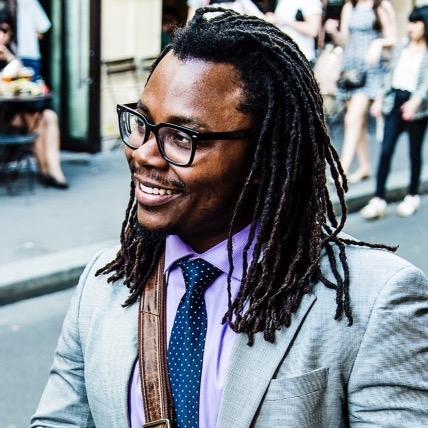
Campbell is spending the summer as an Ella Baker intern at the Center for Constitutional Rights.
Upon my arrival to Rutgers Law School, I knew exactly where I wanted to intern for my 1L summer. I heard about the Center for Constitutional Rights (CCR) while I was a doctoral student in the Afro-American Studies Department at the University of Massachusetts, Amherst. Radical lawyers, CCR founders, and former Rutgers professors Arthur Kinoy and Morton Stavis appeared in the books I read about the Black Freedom Struggle of the 1960s and 1970s. Eagerly, I watched Rutgers Law alums Vince Warren (executive director) and Donita Judge (associate executive director) on Democracy Now! and MSNBC, respectively; and read editorials by CCR staff attorney, Rachel Meeropol. As soon as I received my acceptance letter to law school, my eyes were set on becoming an Ella Baker intern at CCR.
When I arrived in New York City to begin my time as an Ella Baker intern—named after the brilliant civil rights activist—I quickly learned that CCR was about more than impact litigation. Instead, it centered “movement lawyering,” attorneys and legal advocates linking themselves with local, national, and international movements to affect political narratives that shape how injustice operates. For the staff here, it is not necessarily about winning cases more than it is about advancing political struggle that determines the lives of everyday people. From challenging the solitary confinement of prisoners, arming communities with legal strategies on how to fight white nationalist organizations in court, and confronting petrochemical companies polluting black communities and causing cancer in Louisiana, witnessing first-hand the intelligence and courage of CCR’s attorneys and staff continue to inspire me as a move into the final month of my internship here. Moreover, CCR does not limit its pursuit of justice to US borders, for it ambitiously and bravely engages in legal battles on the side of Palestinians and Guantanamo Bay detainees. While these may not be considered the most popular causes to take on, they are certainly some of the most necessary ones to litigate.
Besides conducting research and writing memoranda to assist the attorneys with their respective cases, “Ellas,” as we are affectionately called, take part in legal strategy meetings, conference calls, and, in some cases, travel to places as far as Washington, D.C. and South Carolina to observe oral arguments in federal court. Furthermore, we are strongly encouraged to attend rallies and protests in the New York City area that address issues such as police brutality and transgender rights. Finally, we participate in CCR’s “movement lawyer series” with attorneys from across the country who speak to us about the work they do, the pressing issues before us, and the role we all play in transforming our world into what the Rev. Dr. Martin Luther King, Jr. called an “oasis of justice.” These attorneys inject us with infectious inspiration when we, at times, become overwhelmed with the crippling effects of racism, capitalism, transphobia, ableism, and heterosexism.
On CCR’s annual trip to Storm King Art Museum, I recall looking out into the green fields and reminding myself of how important CCR’s work is to marginalized communities throughout the world. In the legal profession, there is often tension between the pursuit of wealth and the pursuit of social justice. Admittedly, I have felt it, especially considering the history of black people in the United States and how this country’s wealth was created by enslaving my ancestors. Yet, when I observed the richness of the land that day, I was reminded of Vince Warren’s words—"There are only two things in life worth doing: alleviating pain and creating beauty.” The struggle to create a better world is, at times, painful. However, there is beauty in those who continue to pursue justice for the most vulnerable of us. This is the work of the Center for Constitutional Rights.
